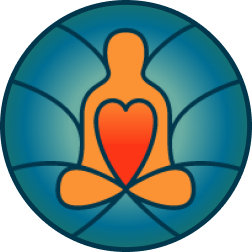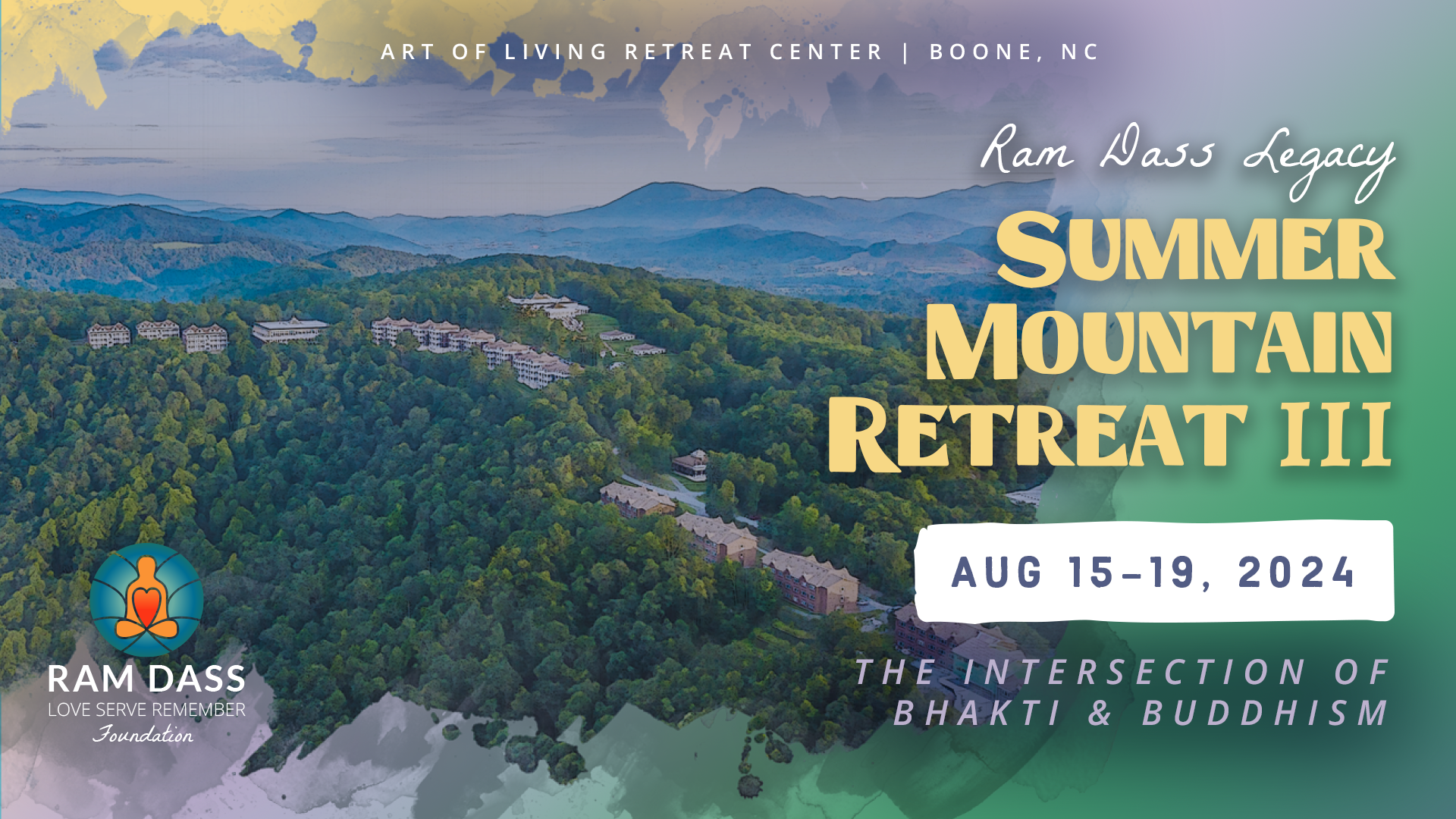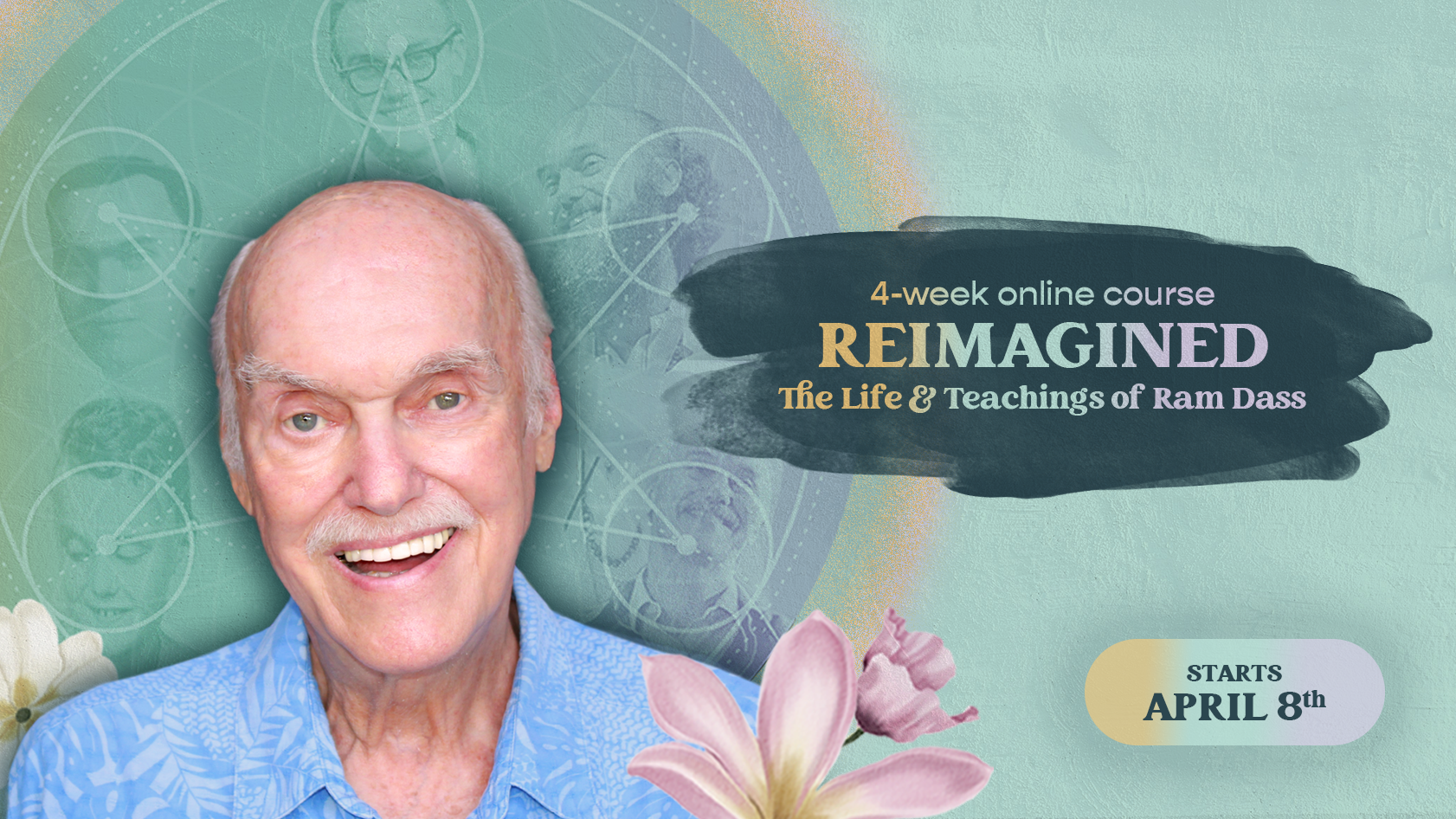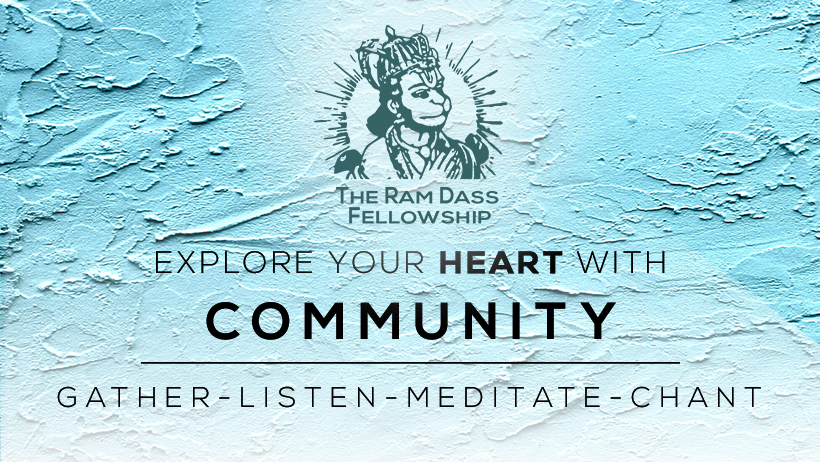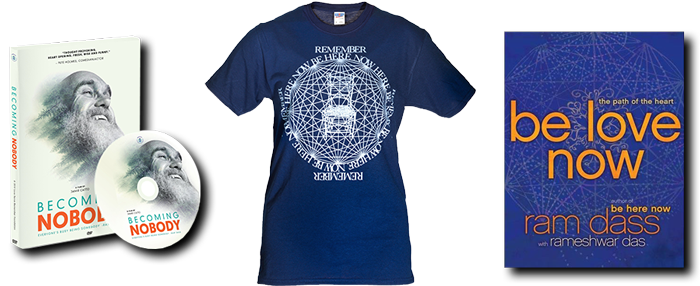In this interview, Ram Dass talks with Unity Magazine editor Katy Koontz about aging, living, dying, and who we really, really are.
Katy Koontz: How are you feeling these days?
Ram Dass: Specify the “you.” My body is 86, and feeling aches and pains; but me, I’m in here and I’m … infinite!
KK: I love the story you tell about a train conductor asking if you wanted the senior discount and how you then reflected on the senior discount mindset. Can you elaborate on that?
RD: This happened about the time I turned 60. The conductor asked if I wanted a senior citizen ticket, and I was shocked that he would even know I was a senior citizen. I was still adjusting to aging, and that wasn’t who I thought I was. That was a time when I was identified with my body. I was balancing aging and youth. I’m just now content with my aging body. I’m free; I’m happy. I’m in love with everyone and everything. I see the beauty of the universe, including my aging body. I’m content with however it is. I’m getting peaceful, and I identify with that peacefulness within me.
KK: It can’t get better than that!
RD: After the stroke I became a new person. Before the stroke, I played my cello, played golf, flew my plane, and drove my fancy car. I was all a good bachelor could be. The stroke left my right side pretty much useless, and it cut those things out of my life. Afterward, in the hospital, my relatives, friends, the doctors, nurses, and attendants were all in my room, and there were lots of long faces. “He had a stroke! Oh, my God!” It was all that mind thing—they were projecting. Before the stroke I felt grace from my guru. Here I was in the hospital room, and somebody put up a picture of Maharaji, my guru [Neem Karoli Baba, who was no longer alive], and I said to Maharaji, “What were you doing while I was having a stroke? Eating lunch? This is certainly not grace!”
He said, “Wait and see. Wait and see.” I waited two months and had terrible depression. I was depressed about the loss of my body, and I was depressed about the loss of my faith. When I came out of it, I stopped looking outside myself for happiness. I started looking inside and started to feel joy, joy, joy! This was grace. From that point on, I felt my soul. I felt the soul and not my soul because my soul was here in my head, but I was feeling the perception that everything was lovable and the whole universe was giving me love. I learned unconditional love from my guru just loving me as I was.
KK: How can we more easily and consciously connect with, as you put it, the soul instead of the soul in our head?
RD: The thinking mind and the ego are part of the soul in our head. It’s called monkey mind, and it’s uncomfortable. You can bring your attention and your identification with those thoughts down to your heart by using a mantra, such as: “I am loving awareness … I am loving awareness … I am loving awareness.” That brings you to the heart, which is a doorway to the soul or the soul land, as I call it—another plane of consciousness.
You enter into that heart place, and from there you enter your true soul. Your true soul is a being of light. The soul doesn’t comply with time, with space—it just is. Then a component of the soul, the witness, can see your thoughts, your incarnation. It stands behind the incarnation, and then you identify with your watching power, the witness. If you witness a thought that isn’t going to help you on your way to God, you love it. Maharaji gave me two instructions: Love everybody and tell the truth. All I could say to him was, “Maharaji, I can’t do that.” He said again, “Love everybody, and tell the truth.” Maharaji loved everybody—everybody! I’ve slowly grown into my soul. It’s only in the soul where you love everybody and tell the truth. I have a pooja table with all of the saints—and Donald Trump. I love all the saints! I love Anandamayi, Jesus, and Buddha. Well, Donald … Now, I’m identified with my soul, and a soul sees other people as souls. Souls love each other.
I look at the picture of Donald Trump and I see the soul. I realize I have compassion for that soul because he’s got a hard incarnation. Such karma! He’s acting out motives that are from past lives. When you’re dying and going into soul land and the bardo, the in-between state, you meet your soul pod, a collection of souls gathered together in consciousness. Your soul pod has been traveling with you since it all began. The soul pod asks what you learned from your incarnation.
KK: And you better have a good answer, right?
RD: That’s right! Then there is another being of light—your guru, your angel—or whatever it is for you. You and your guru contemplate the choices for your next incarnation, including the choices that would lessen your karma, and then the two of you push the button. And all of the sudden, waaah, waaah, waaah!
KK: And it starts all over.
RD: All over! So … you’re asking me about old age.
KK: Yes, you said you didn’t want to take that senior discount because it would be limiting who you were.
RD: Yes, because by doing that, I would be identifying with my body. It’s like when people ask me to have a birthday celebration. No—I’m infinite! Are you going to celebrate the birthday of my leg?
KK: Does it get easier to identify with the soul and come from the heart as you age?
RD: It gets easier and easier because as you’re aging, you’re looking at everything from a distance, and you’re more peaceful and loving. Now I look forward to senior citizen discounts. Here, they’re called kama’aina—that’s the Hawaiian word for them. When I was young, I wanted to identify with my motives. Now I’m content; I’m not achieving.
I identify with “I AM,” with consciousness, which is the One. I looked around my soul until I spied a doorway for the next consciousness level. That’s the doorway to the One. The siddha yogis [perfected beings], like my guru, sit in between the individual soul and the oversoul. That consciousness level is God and guru and self as one. You’re in love in the ocean of love. People don’t realize the soul is really what they are, and then the other plane is the One. That’s really, really who you are.
KK: I’d say that’s good news!
RD: I’d say it too!
KK: So many other cultures revere that and understand that. How did ours get so turned around?
RD: We got attached to our senses, so we collect things. In India, they see themselves as souls, playing roles like in movies—I’m a teacher, I’m a this, I’m a that—because they have an ancient wisdom. When I was in my psychedelic period, I was bugged that the psychedelic culture didn’t really explain planes of consciousness. One Saturday night, I had an ineffable experience that I could not express. The next Tuesday, Aldous Huxley gave us The Tibetan Book of the Dead, and I realized that Easterners knew the planes of consciousness.
I went to the East to find somebody, a map reader, and I found my guru. He was the map. He was on every plane. I found out from his consciousness, from his love, that we as humans could really be on other planes of consciousness. When I came back to the West, they heard me. They heard the jewel, Maharaji. They heard that what we settle for is who we think we are, and when we are in our soul— yum, yum, yum, yum, yum!
KK: Why are they so lucky to get that in India?
RD: It wasn’t from luck but from handed-down wisdom. The first time I went to India, I went to Benares, which is a very ancient city where Hindus come to die. I saw people walking the streets, each with a little cloth bag of coins on their belt to pay for the wood to burn their bodies after they die. When I looked into the eyes of these people, I felt so sorry for them. That was my Western thought: I’m so sorry for you. They looked back at me as if I were a hungry ghost. I ended up hiding under my bed at the hotel because I was too afraid. After I met my guru, he put me in an ashram where I learned about yoga and Hinduism. When I returned to Benares, I again looked into the eyes of those people and I understood that they were content.
KK: You say we go from knowledge when we’re younger to wisdom when we’re older. Can you say more about that?
RD: Knowledge is in the mind, and we take it in with our senses and it’s put into the brain. When I was teaching Psychology I at Stanford University in a big lecture hall, one day the lights went out. I couldn’t see my notes and I panicked because that was where knowledge lived—in the notes and the audience. Intuitively, we are wise because we see the whole incarnation. Wisdom comes from that third plane of consciousness. I’m in everything, which means I love everything.
Love brings you close to everything. That’s wisdom that you can understand by intuition.
When you look at the wall, and the television—all of it—it’s all a manifestation of the One. Wow! And me too! So after having lived through the knowledge section of my life, now they wheel me up on the stage and I just radiate love. Not bad!
This interview was originally published in the September/October 2017 issue of Unity Magazine

